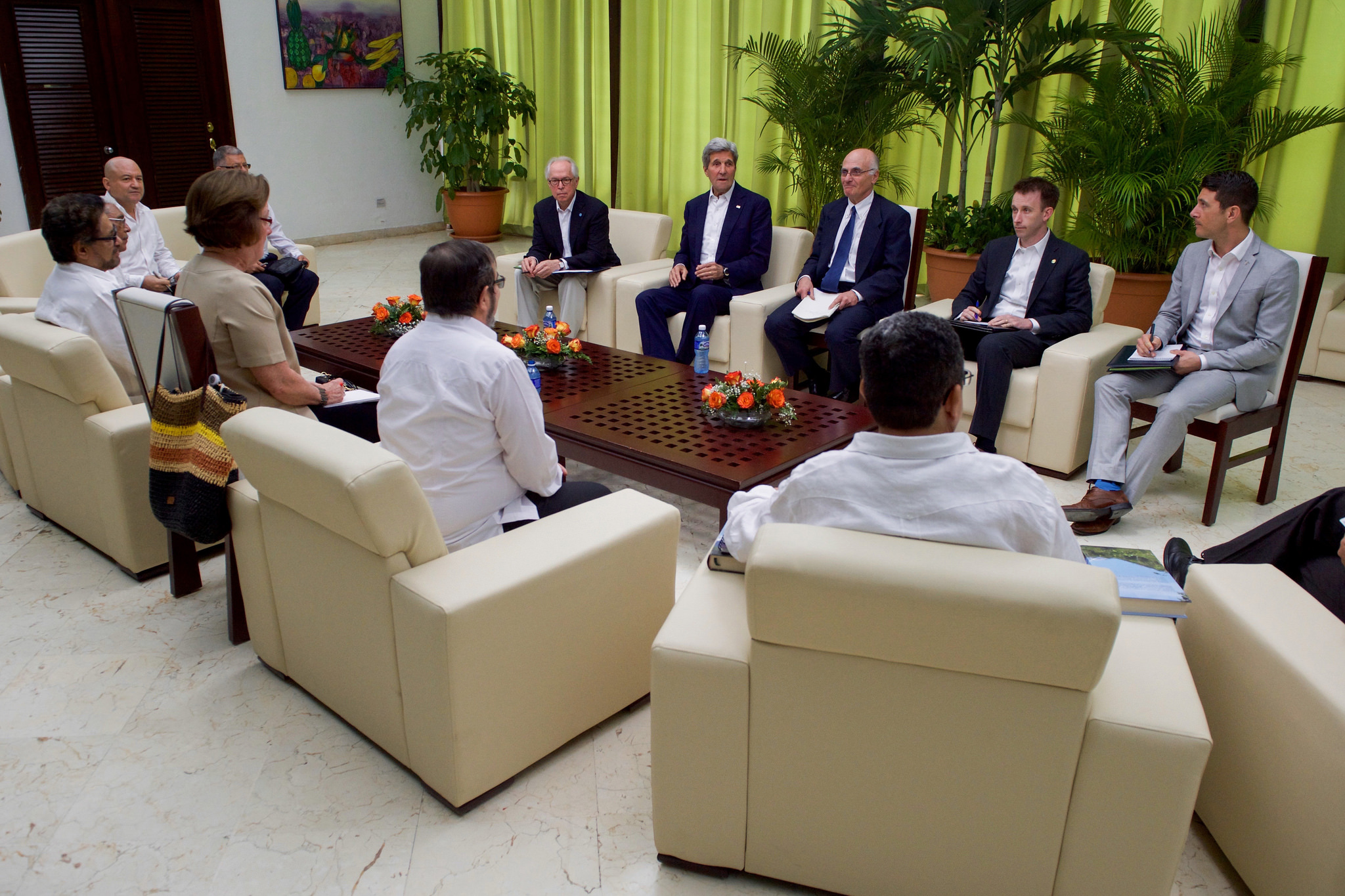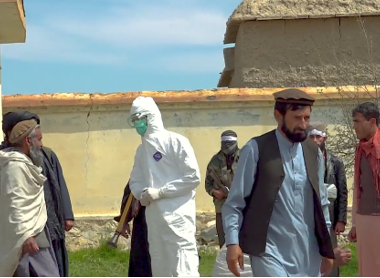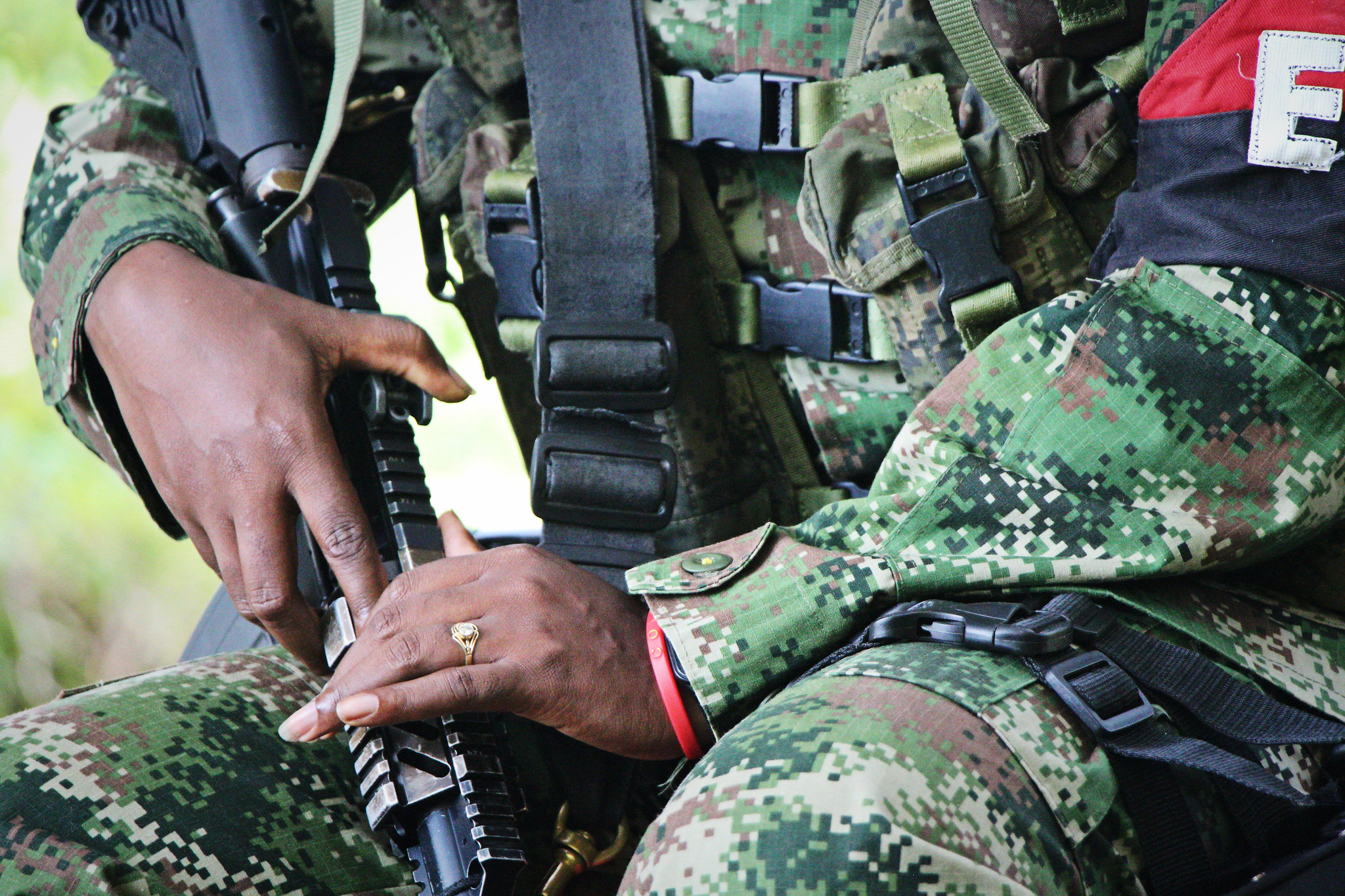By Mike Findley, Alejandro Ponce de Leon, & Mike Denly.
We just returned from fieldwork in FARC-controlled territories of Colombia (as part of larger joint work with Joseph Young and Oliver Kaplan). Amidst the ongoing peace process, we asked citizens – days after the delayed signing of the originally intended March 23rd peace accord – whether they anticipated that a government peace accord signed with the Fuerzas Armadas Revolucionarias de Colombia (FARC) would end violence. In one focus group, a participant remarked that signing a peace accord would not create peace because splinter groups committed to territorial control or narco-trafficking would emerge. Other participants generally agreed.
Some peer-reviewed evidence about the effects of splintering on war duration and recurrence speaks to this point. In two recent studies, Findley and co-author Rudloff argue that the splintering of groups may produce shorter war durations, and find that splintering makes wars more likely to recur at some later point. These studies are based on a theoretical computational model and also a quantitative empirical analysis, which identify broad patterns and average effects.
The focus group comment implies that the situation in Colombia may provide a good test case for these studies. Consider the organizational dynamics of FARC. In 1982, during their seventh conference, FARC decentralized authority and adopted a semi-federal structure where each front could enact their own strategies to obtain resources and to execute military directives. But in order to retain a centralized chain of command, FARC also created the Secretariado del Estado Mayor Central, a directive organ where each block commander has a seat to influence the decisions of the entire organization as well as to issue direct orders for each front. This structural organization helps to explain why, when the Secretariado declared a unilateral ceasefire in 2015, most of FARC’s military units followed their command and, as recent studies conducted by the Colombian Conflict Analysis Resource Center (CERAC) have concluded, reduced armed confrontation to the lowest levels in the past 51 years.
Yet, these studies also assert that extortion as well as the participation in illegal economies (e.g., illegal mining and drug trafficking) still prevail in regions where coca plantations generate a significant revenue for the organization. In the same vein, a major Latin American think tank, Insight Crime, denounced the certainly problematic behavior of FARC commanders using their guerrilla units to build personal fortunes out of narco-trafficking. This might imply that some FARC unit commanders have been taking advantage of their relative autonomy and while the front and unit commanders follow the general order to stop the violation of human rights, they also engage in narco-trafficking for their own economic benefit before a demobilization agreement is reached with the government.
While we were in Colombia, the other key rebel group, the Ejercito de Liberación Nacional (ELN – National Liberation Army), announced that it plans to join the peace process. In the near future, then, both FARC and ELN have aims to reach a peace accord with the government. Optimism is at a high point among policymakers and academics. While the various combatants have never been closer, both academic inquiries and perceptions on the ground suggest that peace accords will likely move forward at least with some elements of both rebel groups and yet may be more precarious given fragmentation of the various groups, not to mention that paramilitaries and bandas criminales (criminal bands/gangs) are not included in any agreement. Now that the central leadership of the two key rebel groups have committed to peace, the Colombian government – and international actors in Colombia – would do well to make robust preparations for group fracturing and subsequent spoiling attempts that are sure to follow.
Michael Findley is Associate Professor in the Department of Government at the University of Texas at Austin. Alejandro Ponce de Leon is a graduate student in the Department of Sociology at the University of Texas at Austin. Mike Denly is a graduate student in the Department of Government at the University of Texas at Austin.






